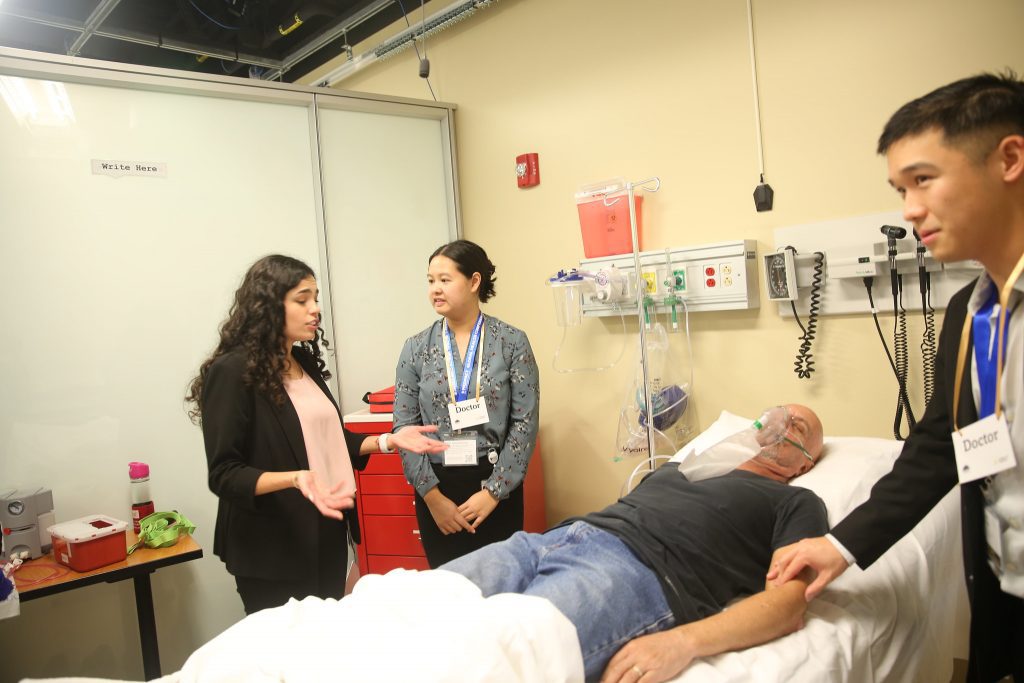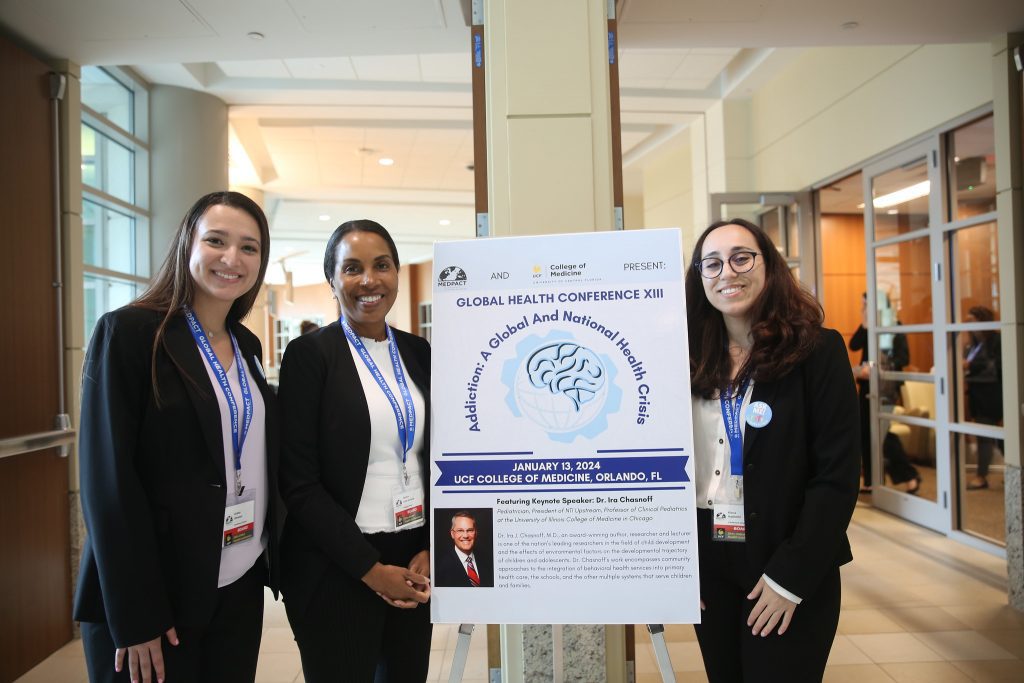
An estimated 36.3 million people worldwide suffer from addiction and on Jan.13, medical students and health professionals gathered at the UCF College of Medicine to discuss better ways to care to those afflicted.
More than 400 medical, nursing, dental, pharmacy and social work students, and other health professionals from universities across Florida as well as Emory School of Medicine, University of Minnesota and University of South Alabama attended the 13th annual Global Health Conference hosted by UCF’s MedPACt (Medical Students Providing Across Continents). The College of Medicine student organization is dedicated to promoting awareness and participation in improving the health needs of people throughout the world. This year’s event drew the highest number of attendees since it began in 2011.
Keynote speaker Dr. Ira Chasnoff, pediatrician and professor of Clinical Pediatrics at the University of Illinois College of Medicine explored the social and biological factors associated with addictions and how substance misuse can impact bonding and attachment styles between mother and baby.
“I think it’s important for medical students to understand not only the neurobiology, but the psychosocial aspects of addiction,” Dr. Chasnoff said. “Because you have to look beyond what you see and try to understand what’s really going on with the person. An act of empathy through an attempt of understanding, enhances communication and the better we can communicate with our patients, the more successful we will be in helping them find the road to sobriety.”

Following the opening keynote, students and faculty broke into interactive workshops that examined topics such as at-risk populations for addiction, tech addiction, policymaking, and food addiction. There was even a dance workshop that explored an alternative method of addiction therapy where participants learned a dance choreography to Shawn Mendez’ “In My Blood.”
Attendees also received hands-on experience in dealing with addiction-related crises in simulation exercises. Patient actors and computerized medical mannikins displayed symptoms of opioid overdose and alcohol withdrawal while participants, placed in interdisciplinary teams, collaboratively brainstormed to diagnose and treat these conditions.
Conference directors Kiana Hashemi and Ariana Johnson, both second-year medical students, said they selected addiction as it is a pervasive global health issue with significant implications for healthcare practice across disciplines.
“One of our main goals for this year’s conference was to make this a multidisciplinary conference,” said Johnson. “We ensured that our presenters and attendees were from diverse specialties in healthcare so that we would receive different perspectives on experiences with addictions. So the conference offered a chance for us to see what everybody brings to the field, what they’re doing, and to get more familiar with a variety of patient scenarios.”
Dr. Janice Cato Varlack, director of Community-Engaged Service Learning and faculty adviser for MedPact, said addiction is a pressing global health issue that requires multidisciplinary approaches in prevention, treatment, harm reduction and policy interventions.
“Conferences such as this are therefore beneficial as it brings together people with unique knowledge and experiences who are sharing it on a large scale,” Dr. Cato Varlack said. “When everyone learns from each other, then integrate that into their care action plan for patients in the future, then we will, as a medical community, start making a bigger impact.”